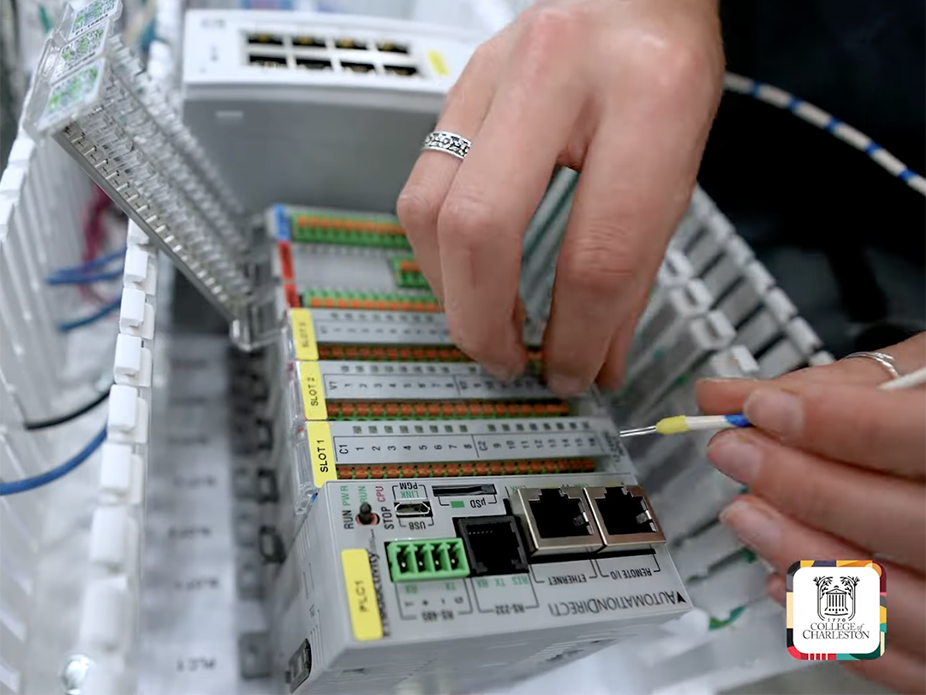Department of Engineering
Learn to think differently when you study engineering at the College of Charleston.
If you’re looking to solve complex problems, increase efficiencies and improve systems, you’ve come to the right place. The Department of Engineering at the College of Charleston is one-of-a-kind.
Charleston, S.C.
There’s no place better than Charleston, S.C. When you study here, you’ll be surrounded by companies like Google, Boeing, Bosch, Mercedes-Benz Vanz, Volvo, Cummins, Scientific Research Corporation, the Naval Information Warfare Center and many, many others.
The state’s only comprehensive academic health sciences center is just a short walk from campus. We’re talking about the Medical University of South Carolina.
And, because aerospace, automotive, logistics, software/IT, medical and hospitality and tourism jobs dominate the region, you’ll have so many opportunities for internships and co-ops without leaving town.
A Global Perspective
As the world becomes more complex, engineers must work with diverse teams, understand the impact of global issues and be sensitive to other cultures.
Did you know the College has an entire school dedicated to the study of languages, cultures and world affairs?The College of Charleston’s general education courses allow you to take full advantage of these courses, and many others, that focus on tackling real-world international challenges.
You’ll understand how the social, political, historical and economic factors may impact a project.
Learn Skills Employers Want
Developing critical technical skills and industry knowledge is important. Most engineering programs, including the ones at the College, will prepare you to join the workforce. What sets us apart is that we also equip you with other, highly valued skills like:
- communication and public speaking,
- interpersonal communication,
- problem solving and
- critical thinking.
Academic Programs
Hands-on Experience with REI Automation


Our Facilities
As a student in the Department of Engineering, you'll have access to all the state-of-the-art facilities in the School of Engineering, Computing, and Mathematics. Plus, several labs and a lounge just for engineering students.

